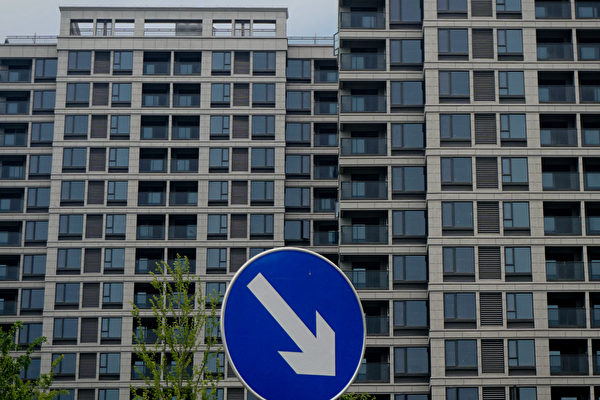With the mainland real estate market in a downturn, even the so-called “bargain-hunting” judicial auction houses are not selling well. Some people think that buying a discounted judicial auction house is a good deal, but others find themselves unable to move in after purchasing a property, caught in a dilemma. As a result, judicial auction houses have been questioned as potential minefields with hidden risks.
Judicial auction houses are properties auctioned off by judicial authorities.
Over the years, the number of judicial auction houses in mainland China has been rapidly increasing. According to statistics from Zhongzhi Research Institute, in 2015, there were a total of 37,800 judicial auction houses for residential properties in mainland China. By 2023, the number had almost multiplied tenfold to nearly 370,000 residential judicial auction houses available nationwide.
However, the clearance rate of residential judicial auction houses, which refers to the proportion of properties sold compared to the total inventory, did not increase with the surge in the number of auction houses and peaked at 55.5% in 2018. It has been on a downward trend since then, reaching only 29.4% by 2023. This indicates that less than three out of ten residential judicial auction houses are successfully sold.
At the same time, there is an increasing number of re-auctions for judicial auction houses that failed to sell on the first attempt. If no bids are placed during the first auction, it is considered a failure, and the property will be re-auctioned at a lower price.
In the first half of 2024, the auction situation for judicial auction houses showed that the proportion of successful re-auctions reached 47%, a 7% increase compared to the same period in 2023, while the proportion of initial auctions decreased to 37%.
Where are all these discounted judicial auction houses that remain unsold located?
According to data from Zhongzhi Research Institute, in 2023, a total of 18 provinces, cities, and autonomous regions had over 10,000 residential judicial auction houses, with Guangdong and Henan having the most, with 37,400 and 31,800 properties respectively.
Despite the significant number of judicial auction houses in these provinces, their clearance rates do not lead the market.
In first-tier cities where the average price of second-hand homes is around tens of thousands per square meter, some people see purchasing a discounted judicial auction house as a viable option. It is often summarized by netizens as “seizing opportunities in the first round and picking the leftovers in the second.” However, many of these unsold properties are not assets seized by law enforcement agencies or related to criminal cases like “stigmatized properties,” “starting at one yuan,” or assets of fallen high-ranking officials, but rather merely offer sensational headlines. Bankrupt assets and properties voluntarily disposed of make up only a small portion of the judicial auction market.
Currently, most judicial auction houses listed online result from litigation over debt disputes, reflecting the worsening financial situations of ordinary individuals. Many buyers who could not repay their mortgages due to business failures or layoffs bought properties at their peak during the property boom. They now face difficulties in repayment or even insolvency.
According to Ernst & Young’s “China Listed Banks’ 2023 Review and Future Outlook,” the default rates for personal housing loans in both large banks and city commercial banks have been continuously rising. Looking at all listed banks, the default rate increased from 0.32% in 2021 to 0.49% in 2023.
Recent years have seen a sluggish market for judicial auction houses, causing many to hesitate due to the potential risks masked by seemingly attractive discounts. In an era where even purchasing new properties carries risks, second-hand properties undergoing forced executions add another layer of uncertainty.
Social media posts related to judicial auction houses reveal that many people are hesitating to take the plunge, fearing they may not be able to move in.
Such concerns are not unfounded. Some previous property owners may resist vacating their properties or even damage the houses because they are unhappy about the auctioning process. This results in successful bidders being unable to move in smoothly, despite the relevant information that may be disclosed by the court, critical details such as existing lease agreements, illegal occupation, or residency issues are often missing.
The article points out that buying a judicial auction house can lead to even more problems. Many individuals have shared their experiences of being deceived on social media platforms, with instances of “buying without vacating lease agreements” being particularly common.
For example, if a seller signed a 20-year lease agreement at a low price with relatives or friends before the auction, the buyer may not have the right to reside in the property even after successfully transferring ownership. The most perplexing situation arises when there are issues related to occupancy rights, with cases of elderly debtors posting threatening slogans on their doors, warning potential buyers about their aggressive pets.
Judicial auction houses are akin to a “property blind box,” where some hope to find hidden gems at low prices but end up with properties that do not fulfill their dreams of a cozy home. Moreover, in the realm of life’s most significant investment, there is no “seven-day unconditional return policy.”
The article raises questions about whether judicial auction houses are minefields with hidden risks, not the straightforward opportunities accessible to the average person.

